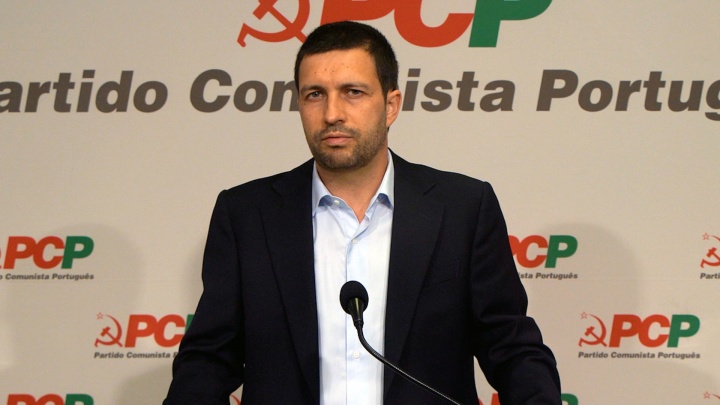The Portuguese Presidency of the Council of the European Union confirmed, in essence, the alignment of the Portuguese government with the guidelines and policies of the European Union, namely in their most negative features, which are determined by the interests of the main powers and major economic and financial groups.
With this Presidency, an opportunity was lost to promote the necessary questioning of the course and policies that are at the origin of the worsening of social inequalities, the growing asymmetries of development between countries and the dominance-dependence relations that characterise the European Union.
An opportunity was also lost, with the Presidency of the Council of the EU, to bring to the debate the most salient themes and processes of the last six months, the indispensable defence of national interests, which does not dispense, but rather requires, an articulation of efforts with countries facing similar difficulties and with interests converging with those of Portugal.
The conclusion of ongoing legislative processes, under the aegis of the Portuguese Presidency, confirms several negative developments, particularly for Portugal.
The Recovery and Resilience Plan and the 2021-2027 Financial Framework, whose implementation is delayed given the needs, confirms a framework of significant constraints on the use of funds. The Portuguese government caved in to the subordination of the mobilisation of those funds to rules of macroeconomic conditionality and the so-called “structural reforms” that may be imposed on Portugal by the EU, interfering with its development options and hindering the necessary response to the problems of the workers, the people and the country.
The so-called “Social Summit”, held in Porto, which was an operation to whitewash the responsibilities of the EU and its policies, besides announcing objectives that are confirmed to be limited and lacking the means to achieve them, denoted the real intention to pursue the onslaught against social and labour rights, under the pretext of the so-called “digital” and “green” transitions, promoting a levelling-down of the living conditions of workers and peoples.
The review of the Common Agricultural Policy (CAP) does not ensure the answer to the problems facing national agriculture, rather confirms the CAP as one of the causes of these problems, especially regarding the situation of small and medium-size farmers and family agriculture. The agreement reached continues to maintain unacceptable inequalities in the distribution of CAP funds and heightens favouring the concentration of property and agricultural activity.
The launch of the so-called “Conference on the Future of Europe”, that is, the future of the European Union, aims to confer a supposed and false legitimacy to an integration process that despised and affronted the will of the peoples. It is a stunt that seeks to conceal a predefined script and political objectives, which involve the deepening of the concentration of power in the main powers, usurping new and growing spheres of State sovereignty, namely by calling into question the principle of unanimity in the areas where this still exists.
The Portuguese Government, over the past six months, has always been aligned with the interests of those who have determined the course of the European Union.
Even in the face of contradictions that created conditions for the affirmation of different perspectives and approaches, the Portuguese government always sought to resolve such contradictions by defending the positions of the main powers.
The issue of vaccination against COVID-19 is paradigmatic. In view of the evidence of the failure of the EU strategy, the Portuguese Presidency aligned with the stubborn defence of the interests and profits of multinational pharmaceutical consortia, refusing either to diversify the acquisition of vaccines validated by the WHO, which some States had initiated, or the lifting of patents on vaccines, thus preventing the more rapid advance of vaccination, which is essential to save lives, ensure the resumption of economic, social, cultural and sporting activities, and limit the emergence of new variants of the virus.
At the international level, the policy of concertation with the USA is particularly visible, namely within the framework of NATO, in the pursuit of the strategic objectives of the aggressive agenda and confrontation of imperialism, in disregard for the principles of the Constitution of the Portuguese Republic, of the Charter of the United Nations and of International Law.
The Portuguese Presidency, in broad terms, did not contribute to pointing out solutions to the serious problems that workers and peoples are facing, nor to affirming policies that, while meeting the interests of Portugal, ensure an effective convergence in economic and social progress.
In view of the current situation, the necessary response lies in the affirmation of the sovereign right of each country to development and social progress, in accordance with its reality and specificities, and in the valorisation of the rights of workers and peoples. A response that is only possible with the rejection of impositions and constraints that are contrary to the national interest, articulated with the perspective of building a Europe of cooperation between sovereign States with equal rights, of social progress and peace.
